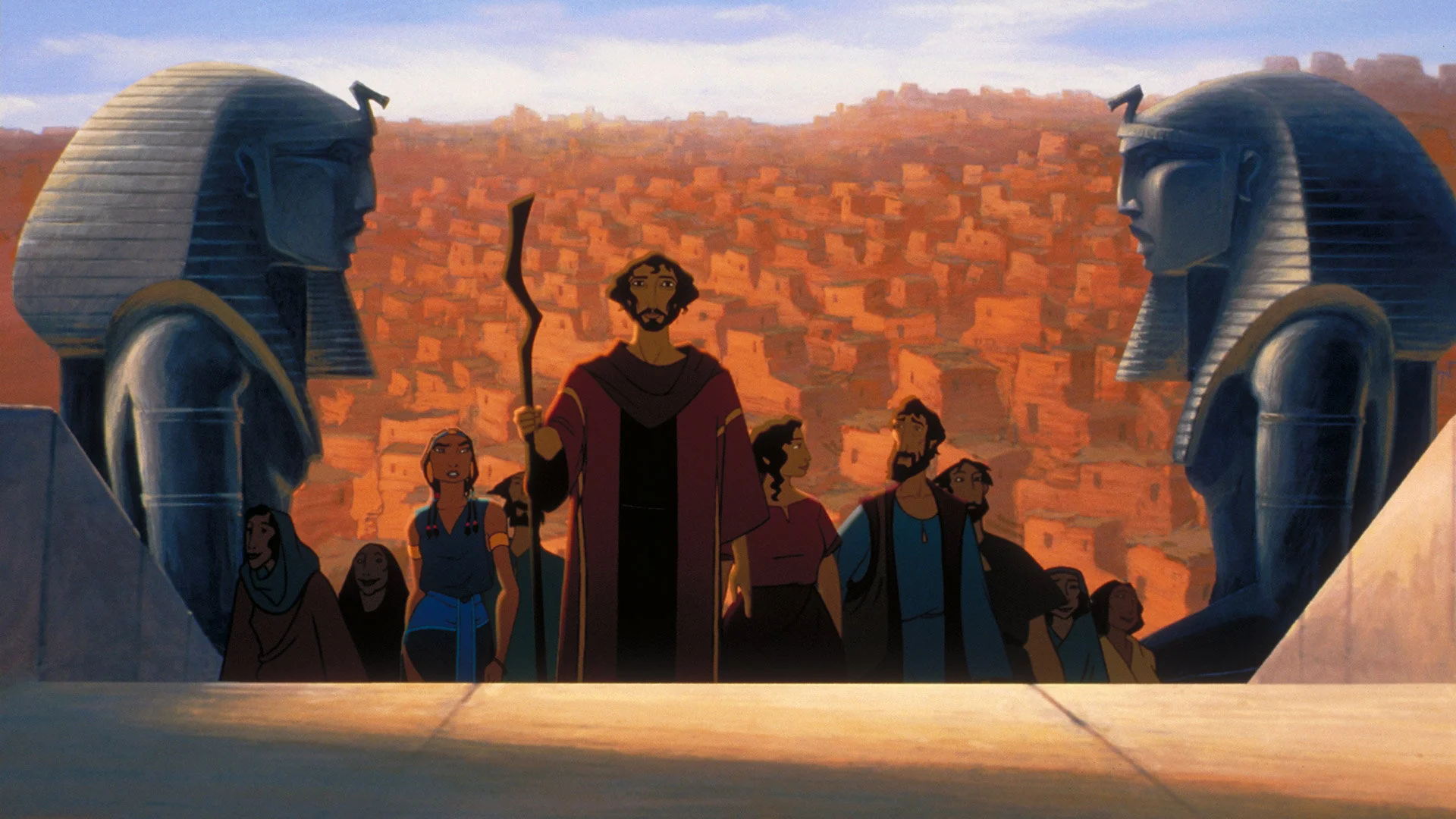Since it is the end of the Passover holiday, and since I'm getting to this post a little late, I thought it would be the perfect time to unveil a new segment for the site: Character Moments. In this segment, we'll take a look at a movie or TV show and identify a strong--or terrible--character moment.
Today, we're going to take a look at one of my favorite moments from the Dreamworks picture The Prince of Egypt. This creative retelling of the Exodus story arrived in the early years of the studio, before they had fully shaken loose their Disney roots. The music was catchy, but not as infectious as say Beauty and the Beast. The animation was realistic with a little style, but not always cohesive. And though the script was pulled from the Bible, it had just enough personality to stand aside from The Ten Commandments and other such films.
But in the middle of this modest and appreciable effort came a truly wonderful character moment, and one I was shocked to find hadn't been discussed earlier.
For those of you not as well versed in the story of the Exodus, let me give you a crash course. The Jewish people (then called the Hebrews) were slaves in ancient Egypt for Ramses. They built great cities, toiled in hard labor, and their lives were brutal. They cried out for deliverance. Around the same time, the Pharaoh decreed that all new-born males were to be put to death (either as a precaution against rebellion, or because his mystics told him to do so). In order to save her child, a Hebrew woman named Yocheved placed her newborn son into the Nile river and sent him away, praying he would be saved. As luck/fate/God would have it, this child ended up being pulled from the river by none other than the wife of the Pharaoh. He was named Moses, which meant to be pulled from the river, and he became a prince of Egypt.
Years later, Moses discovers that he is a Hebrew. His people see him as a taskmaster, as the brunt of their oppression, and that horrifies him. When he sees a slave being beaten to death, he intervenes and kills a guard. In terror, he flees Egypt for the far reaches of Midian. There he became a shepherd with the nomadic tribes. One day, while chasing down a stray kid, he discovered a bush that burned but was not consumed. A voice revealed itself to him.
"I am that I am."
Moses realized he faced his very creator. He was tasked with going back to Egypt, to face down the god-king Pharaoh, and to deliver the Hebrews from their bondage. After a brief negotiation, Moses took the job.
Now we get to our character moment. Moses (and his new wife Tziporah) arrive in Egypt before the Pharaoh. The old king is dead, and his son--Ramses II--now sits the alabaster throne. Moses approaches and the Pharaoh rises.
"Moses?"
In a break from the tense setting, Moses and Ramses embrace in a display of sibling love and excitement. Ramses circles his younger brother, admiring the strange Midian clothes, ruffling Moses' wild hair. It is a beautiful scene that contrasts wildly the darkness to come.
It is a true character moment.
Try to separate the legend of Moses from the man, from the character. He was a stranger in a strange land, first as the adopted son of Egypt, then as the adopted son of Midian. He fled his family after learning that he was a Hebrew, then returned at the bidding of a spiritual awakening. But at the height of his fear, he saw a familiar face: His brother. Someone he could always trust. Someone who would always help him out when he was in trouble.
That makes the conflict ahead so much harder. Moses not only stands against the might of Egypt, he stands opposite the only family he has left. He shuns his brother, his blood, in favor of a people he has never known, for a god in whom he had not believed.
Dreamworks' film wasn't perfect, but it explored a reality in a fantastical situation, and it did so with aplomb. Regardless of your beliefs, you can agree that standing up to family is a monumental task. Regardless of your faith, you can understand the difficulty in reversing a lifetime of choices.
The Prince of Egypt is a wonderful exploration of the humanity between two titans of the Bible. In creating an understandable and sympathetic Pharaoh, I think it did something even better. In the story of Exodus, as the Hebrews cross the Sea of Reeds and leave Egypt behind, they sing the Song of the Sea. They thank God for casting their enemies into the water.
And God admonishes them.
Even the Egyptians are my children, the Lord says.
The lesson we are meant to learn is that we are to never celebrate death, even that of a hated enemy. At the end of the film, as Ramses cries out for his brother across the raging sea, we can understand...even just a little.
